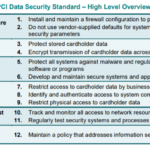In the world of online security, two essential tools have become increasingly popular: antivirus software and VPNs. But how do these two work together, and are there any potential compatibility issues to be aware of? This article aims to shed light on the interaction between antivirus software and VPNs, addressing your concerns and providing valuable insights to ensure a seamless experience. Whether you’re a tech-savvy individual or just beginning your journey towards online security, understanding this dynamic duo is crucial in staying safe and protected in the digital landscape.
Understanding The Functionality of Antivirus Software
In-depth definition and explanation of antivirus software
Antivirus software, also commonly referred to as anti-malware software, is a crucial tool designed to protect your computer or device from various types of malware, such as viruses, worms, Trojans, ransomware, and spyware. Its primary function is to detect, prevent, and eliminate these malicious software threats before they can cause any damage to your system. Antivirus software works by utilizing various techniques, including signature-based scanning, heuristic analysis, and behavioral analysis, to identify and remove known and unknown malware.
Key functionality of antivirus software for protection
The main purpose of antivirus software is to provide a layer of defense against potential threats and ensure the security of your device and personal data. Some of the key functionalities of antivirus software include:
-
Real-time scanning: Antivirus software continuously scans your system, files, and incoming data in real-time, actively searching for any signs of malware or suspicious activity. This proactive approach allows it to identify and neutralize threats before they can execute on your device.
-
Malware detection and removal: Antivirus software employs advanced detection algorithms to identify and isolate various types of malware. Once detected, it takes appropriate actions to remove or quarantine the infected files, protecting your system from further harm.
-
Regular updates: Antivirus software providers continuously update their virus databases to ensure that their software can effectively detect and combat the latest threats. Regular updates help to keep your antivirus software up-to-date and capable of defending against emerging malware.
-
Web protection: Many antivirus software solutions offer web protection features that help safeguard your online activities. They can block malicious websites, filter out phishing attempts, and provide secure browsing, enhancing your overall online security.
How antivirus software scans, detects, and eliminates threats
Antivirus software employs various techniques and methods to scan, detect, and eliminate threats. These methods include:
-
Signature-based scanning: This method involves comparing the files on your device against a database of known malware signatures. If a file matches a known signature, it is flagged as malicious and dealt with accordingly.
-
Heuristic analysis: Antivirus software utilizes heuristic analysis to identify potentially unknown or new types of malware. It analyzes the behavior and characteristics of files, looking for patterns and anomalies that may indicate malicious activity.
-
Behavioral analysis: Antivirus software observes the behavior of programs and files to identify any suspicious activities that may indicate an infection. It looks for patterns such as attempts to modify critical system files or unauthorized network connections.
-
Automatic updates: Antivirus software regularly updates its virus database, ensuring it is equipped to recognize and combat the latest threats. These updates help in improving the software’s ability to detect and eliminate malware effectively.
Understanding The Functionality of VPNs
Explicit understanding of Virtual Private Networks (VPNs)
A Virtual Private Network (VPN) is a technology that creates a secure and encrypted connection over a public network, such as the internet. It allows users to browse the internet and access online resources while ensuring their privacy, security, and anonymity.
VPNs work by establishing a secure tunnel between the user’s device and a remote server maintained by the VPN service provider. This tunnel encrypts all the internet traffic passing through it, making it extremely difficult for anyone to intercept or eavesdrop on the data.
Role of VPNs in ensuring online security and privacy
VPNs play a vital role in enhancing online security and privacy in several ways:
-
Encryption of data: When you connect to a VPN, all the data flowing between your device and the VPN server is encrypted. This encryption protects your sensitive information, such as passwords, banking details, and personal communications, from being intercepted by hackers or malicious actors.
-
Anonymity and privacy: VPNs hide your IP address by assigning you a new IP address from their server network. This helps protect your online identity and makes it more challenging for websites and online services to track your activities and location.
-
Access to geo-restricted content: VPNs allow you to bypass geographic restrictions and access content that may be blocked or limited in your current location. By connecting to a VPN server located in a different country, you can appear as if you are browsing from that country, granting you access to region-locked websites and services.
-
Public Wi-Fi security: When using public Wi-Fi networks, such as those in cafes, airports, or hotels, your data can be vulnerable to interception. VPNs provide an extra layer of security by encrypting your internet traffic, safeguarding your sensitive information from potential hackers lurking on the network.
How VPNs work to protect and encrypt communication data
VPNs utilize various encryption protocols to protect and encrypt communication data. These protocols include:
-
OpenVPN: OpenVPN is one of the most popular and widely used VPN protocols. It offers a high level of security and utilizes OpenSSL encryption algorithms. OpenVPN supports both TCP and UDP protocols and is known for its flexibility and robustness.
-
IPSec (Internet Protocol Security): IPSec is a suite of protocols that provides secure communication over IP networks. It operates at the network layer and can encrypt data at the IP packet level. IPSec can be used in two modes – transport mode and tunnel mode, offering different levels of encryption and protecting network traffic.
-
L2TP/IPSec (Layer 2 Tunneling Protocol with IPSec): L2TP is a tunneling protocol that creates a secure connection between the user’s device and the VPN server. It is often combined with IPSec for enhanced security. L2TP/IPSec is widely supported by most modern operating systems and devices.
-
WireGuard: WireGuard is a relatively new VPN protocol known for its simplicity and efficiency. It aims to provide a faster and more secure connection compared to traditional protocols. WireGuard utilizes modern encryption algorithms and aims to minimize the processing overhead, resulting in improved performance.
Primary interaction of Antivirus Software and VPNs
The simultaneous operation of Antivirus software and VPNs
When it comes to using antivirus software alongside a VPN, the primary interaction between these two tools is their simultaneous operation on your device. Both antivirus software and VPNs can run concurrently without any issues, complementing each other to enhance your overall security.
Antivirus software functions independently from VPNs, continuously scanning your device and files for malware threats. It protects your system from becoming compromised by malicious software and prevents any potential damage.
On the other hand, a VPN establishes a secure and encrypted connection between your device and the VPN server. It protects your online activities, encrypts your internet traffic, and ensures your privacy and anonymity while browsing the web.
How VPNs and Antivirus software complement each other
Antivirus software and VPNs complement each other by providing different layers of protection.
Antivirus software focuses on identifying and eliminating malware threats that may reside on your device or within files. It scans incoming files, monitors running applications, and keeps your system safe from potential intrusions.
VPNs, on the other hand, secure your internet connection by encrypting all the data that passes through the VPN tunnel. This encrypted connection prevents any eavesdropping or interception of your sensitive information, ensuring that your online activities are shielded from prying eyes.
While antivirus software protects your device from malware, a VPN protects your online communication and activities from interception and surveillance. When used together, they create a comprehensive security setup that safeguards both your device and your online presence.
Instances where these tools may conflict or overlap
In some rare instances, conflicts or overlaps may occur between antivirus software and VPNs. These conflicts are usually due to the complex nature of these tools’ functionalities and how they interact with the operating system and network configurations.
One potential conflict arises when both the antivirus software and the VPN attempt to examine or scan network traffic simultaneously. This can cause performance issues, such as slowdowns or connection disruptions. In such cases, adjusting the settings of either the antivirus software or the VPN to avoid overlapping scanning activities can resolve the conflict.
Another instance where conflicts may arise is with the use of VPNs that employ their own built-in security features. Some VPNs offer additional layers of protection, including malware scanning and blocking of malicious websites. If you have such a VPN enabled, it is essential to ensure that it does not conflict with your antivirus software. It is recommended to choose either the antivirus software’s protection features or rely on the VPN’s built-in security features to avoid redundancy and potential conflicts.
Ultimately, conflicts or overlaps between antivirus software and VPNs are relatively rare. Most modern antivirus software and VPN applications are designed to work harmoniously, minimizing the likelihood of compatibility issues for the average user.
Compatibility Issues Between Antivirus Software and VPNs
Common compatibility issues documented by users
While compatibility issues between antivirus software and VPNs are not widespread, there have been a few documented cases where users have reported conflicts or issues. Some common compatibility issues reported by users include:
-
Connection drops or instability: Some users have experienced connection drops or instability when using certain antivirus software alongside specific VPNs. This issue often arises due to conflicts between network drivers and network protocols utilized by the antivirus software and VPN.
-
Performance degradation: In some cases, running both antivirus software and a VPN simultaneously can lead to performance degradation. This may become noticeable when carrying out resource-intensive tasks, such as downloading large files or streaming high-definition videos.
-
False-positive detections: Antivirus software relies on signature-based scanning and heuristic analysis to identify malware threats. In some situations, the VPN’s encrypted network traffic can trigger false-positive detections by the antivirus software, labeling the VPN traffic as suspicious or malicious.
Technical reasons behind these compatibility issues
Compatibility issues between antivirus software and VPNs can arise due to various technical reasons. Some of the common technical factors contributing to these issues include:
-
Network driver conflicts: Antivirus software and VPNs rely on network drivers to establish and maintain network connections. In certain cases, conflicts between these drivers can cause connectivity issues or even system crashes.
-
Conflicting network protocols: Antivirus software and VPNs may utilize different network protocols to scan and route network traffic. When the protocols employed by these tools conflict, it can result in connection drops or performance issues.
-
Resource allocation and utilization: Both antivirus software and VPNs require system resources, such as CPU and memory, to operate effectively. If these tools consume significant system resources simultaneously, it can lead to performance issues and poor overall system responsiveness.
How compatibility issues impact overall security and functionality
Compatibility issues between antivirus software and VPNs can potentially impact the overall security and functionality of both tools. When conflicts or issues arise, it is essential to address them promptly to ensure optimal protection and performance.
From a security perspective, compatibility issues can undermine the effectiveness of both antivirus software and VPNs. A compromised or faulty connection can expose your device and data to potential threats or unauthorized access.
Functionality-wise, compatibility issues can result in poor performance, connection drops, or instability, hindering your ability to browse the internet securely and efficiently. These issues may disrupt your workflow, cause frustration, and impact productivity.
Resolving compatibility issues promptly is crucial to maintain the desired level of security and functionality. It often requires adjusting settings, troubleshooting network configurations, or seeking assistance from the antivirus software or VPN providers.
Testing Antivirus and VPN Compatibility
Steps to determine the compatibility of your Antivirus and VPN
To ensure the compatibility of your antivirus software and VPN, you can follow these steps:
-
Research compatibility: Before installing or using an antivirus software or a VPN, research their compatibility with each other. Check the official documentation, support forums, or user reviews to see if other users have reported any compatibility issues.
-
Install the latest versions: Make sure you have the latest versions of both the antivirus software and VPN. Software updates often include bug fixes, performance improvements, and compatibility enhancements.
-
Enable one at a time: Install and enable one tool at a time, starting with the antivirus software. Test your device’s performance and network connectivity to ensure everything is functioning correctly.
-
Enable the VPN: After verifying that the antivirus software is working as expected, enable the VPN and establish a connection. Monitor your device’s network connectivity and performance to ensure no conflicts or issues arise.
-
Test specific scenarios: Carry out specific scenarios that are relevant to your use case. For example, if you frequently download large files, test the performance and stability of your downloads while both the antivirus software and VPN are running.
What to look out for during the compatibility test
During the compatibility test, pay attention to the following factors:
-
Performance: Monitor your device’s performance with both the antivirus software and VPN enabled. Look for any significant slowdowns, lags, or resource-intensive behavior that may impact your user experience.
-
Network connectivity: Test your device’s network connectivity and ensure there are no connection drops, timeouts, or other network-related issues when using both the antivirus software and VPN.
-
False-positive detections: Check if the antivirus software flags any legitimate VPN traffic as suspicious or potentially malicious. False-positive detections can disrupt your VPN connection or lead to unnecessary prompts and interruptions.
-
Interface conflicts: Ensure that the antivirus software and VPN interfaces do not conflict with each other. Look out for overlapping features, redundant scanning options, or confusing settings that may impact usability.
Understanding the results of your test
After conducting the compatibility test, you should assess the results to determine the compatibility status of your antivirus software and VPN. Consider the following factors:
-
Smooth performance: If both the antivirus software and VPN run smoothly without any noticeable performance issues or conflicts, it indicates that they are compatible and can be used simultaneously without significant concerns.
-
Minor issues or workarounds: If you encounter minor issues or conflicts, such as occasional slowdowns or false-positive detections, but they are easily manageable or can be resolved through simple adjustments, it suggests that the compatibility is acceptable.
-
Major issues or persistent conflicts: If you experience major compatibility issues, such as frequent connection drops, system crashes, or significant performance degradation, it may indicate a stronger incompatibility between the antivirus software and VPN. In such cases, it is advisable to seek further assistance or consider alternatives.
Remember that the compatibility test is an essential step to ensure the smooth functioning and effectiveness of both your antivirus software and VPN. Understanding the results will help you make informed decisions and take appropriate actions to address any compatibility issues that may arise.
Case Studies of Compatibility Issues
Existing research and reports on specific antivirus-VPN compatibility issues
Several case studies and reports have highlighted specific compatibility issues between antivirus software and VPNs. These studies provide insights into the nature of these issues, the potential impact on security and performance, and the steps taken to address them. Some notable case studies include:
-
Study by TheBestVPN: TheBestVPN conducted a study that examined the compatibility issues between various antivirus software and VPN combinations. The study identified instances of performance degradation, connection drops, and false-positive detections across different software combinations. The results emphasized the importance of testing compatibility and seeking alternative solutions for incompatible combinations.
-
Report by AV-TEST: AV-TEST, an independent research institute, conducted comprehensive compatibility tests on different antivirus software and VPN combinations. The report highlighted specific conflicts related to network drivers and protocols, resulting in connectivity issues and performance degradation. The study emphasized the significance of regular updates and optimization to maintain compatibility between these tools.
Lessons to be learned from these case studies
The case studies on antivirus-VPN compatibility issues provide valuable lessons:
-
Compatibility testing is crucial: The case studies highlight the importance of thoroughly testing the compatibility of antivirus software and VPNs before fully relying on them. Conducting compatibility tests can help identify potential conflicts and ensure that the chosen combination works smoothly.
-
Regular updates are essential: Keeping both antivirus software and VPNs up-to-date is crucial in maintaining compatibility. Software updates often include bug fixes, performance improvements, and compatibility enhancements, helping to address any potential issues.
-
Seek professional assistance and guidance: In cases where significant compatibility issues persist or cannot be resolved through simple adjustments, seeking professional assistance or guidance from the antivirus software or VPN provider can be beneficial. They may provide specific recommendations or alternative solutions to mitigate the compatibility issues.
How these issues were resolved or mitigated
Based on the case studies, compatibility issues between antivirus software and VPNs were addressed and mitigated through various means:
-
Software updates: Antivirus software and VPN providers released updates that addressed compatibility issues reported by users. These updates included bug fixes, optimization, and enhancements to ensure smooth operation when running these tools simultaneously.
-
Customized settings or configurations: Users were able to resolve some compatibility issues by adjusting specific settings or configurations within the antivirus software or VPN application. By customizing how the tools interacted with each other or the system, users could mitigate conflicts and achieve compatibility.
-
Alternative software combinations: In certain cases, users had to opt for alternative antivirus software or VPN providers to resolve compatibility issues. By selecting different software combinations that were known to work well together, users were able to find compatible solutions.
The resolutions and mitigations varied depending on the nature and severity of the compatibility issues. However, the common goal was to ensure optimal functionality and security by addressing any conflicts or incompatibilities between antivirus software and VPNs.
Choosing Compatible Antivirus and VPN Software
Factors to consider when choosing antivirus and VPN software
When selecting antivirus and VPN software, consider the following factors to ensure compatibility:
-
Compatibility documentation: Research the official documentation or support resources provided by antivirus software and VPN providers. Look for compatibility information and check if any known conflicts or issues are documented.
-
User reviews and experiences: Explore user reviews and experiences to get insights into compatibility with specific software combinations. Look for feedback from users who have tested and used the same antivirus software and VPN together.
-
Product recommendations: Seek recommendations from trusted sources, such as technology experts, online forums, or IT professionals. They may have firsthand experience or knowledge about compatible antivirus software and VPNs.
-
Vendor support: Consider the level of support provided by the antivirus software and VPN vendors. Prompt and reliable support can be highly beneficial in resolving any compatibility issues that may arise.
Software brands known for their compatibility
Certain antivirus software and VPN brands are known for their compatibility with each other. These brands have been proven to work well together, minimizing the likelihood of conflicts or compatibility issues. Some notable software brands known for their compatibility include:
-
Norton + ExpressVPN: Norton antivirus software is widely recognized for its compatibility with ExpressVPN. Users have reported successful simultaneous operation of these tools without significant conflicts or performance issues.
-
McAfee + NordVPN: McAfee antivirus software and NordVPN have demonstrated compatibility, with users reporting smooth operation and no major compatibility issues.
-
Avast + CyberGhost: Avast antivirus software is often used alongside CyberGhost VPN, with users experiencing compatibility without notable conflicts or issues.
While these software brand combinations are known for their compatibility, it is essential to research and test them thoroughly in your specific environment to ensure optimal performance and security.
Avoiding potentially incompatible software combinations
To avoid potentially incompatible software combinations, consider the following tips:
-
Research compatibility in advance: Before installing antivirus software or a VPN, research their compatibility with each other. Look for potential conflicts, known issues, or reported incompatibilities to make an informed decision.
-
Opt for reputable software: Choose antivirus software and VPN solutions from reputable providers known for their compatibility and commitment to addressing compatibility issues promptly. Reputable software brands often prioritize compatibility to ensure a seamless user experience.
-
Test compatibility before a long-term commitment: Conduct compatibility tests with your chosen antivirus software and VPN before committing to long-term usage. This allows you to identify and address any potential conflicts or issues early on.
-
Seek assistance from experts: If you are uncertain about compatibility or encountering persistent issues, seek assistance from experts, such as customer support or IT professionals. They can provide guidance or recommend alternative solutions to ensure compatibility.
By following these recommendations, you can significantly reduce the risk of encountering incompatible software combinations and optimize the compatibility between your antivirus software and VPN.
Mitigating Compatibility Issues
Possible fixes of common compatibility issues
For common compatibility issues between antivirus software and VPNs, several fixes may help mitigate the problems:
-
Adjust scan exclusions: Antivirus software often allows users to set scan exclusions. Excluding the VPN-related files, folders, or processes from antivirus scans can prevent false-positive detections and reduce conflicts.
-
Disable unnecessary features: Both antivirus software and VPNs often provide additional features beyond their core functionality. Disabling features that overlap or conflict with each other can help mitigate compatibility issues. For example, if the VPN offers its own malware scanning feature, disabling the antivirus software’s similar functionality can prevent conflicts.
-
Update to the latest versions: Keeping both the antivirus software and VPN up to date is essential. Software updates frequently include bug fixes, performance enhancements, and compatibility improvements that can resolve known conflicts.
-
Experiment with different configurations: In some cases, adjusting specific settings within the antivirus software or VPN application can mitigate compatibility issues. Experiment with different configurations, such as changing encryption protocols or adjusting scanning options, to find a combination that works well together.
When to seek professional help for these issues
If you encounter complex or persistent compatibility issues between antivirus software and VPNs, it may be necessary to seek professional assistance. Here are some instances where professional help may be beneficial:
-
Conflicts impacting system stability: If compatibility issues result in system crashes, frequent freezes, or other severe stability problems, professional assistance can help diagnose the underlying causes and provide appropriate solutions.
-
Advanced network configurations: If you have advanced network configurations or use enterprise-grade antivirus software and VPNs, seeking assistance from IT professionals or network administrators is advisable. They can ensure the compatibility and optimal performance of these tools in complex network environments.
-
Compatibility testing in specialized environments: If you are using antivirus software and VPNs on specialized systems or operating systems, such as servers or embedded devices, professional assistance can help ensure proper compatibility testing and configuration for optimal security and functionality.
Remember that professional help can provide valuable insights and solutions to complex compatibility issues. Trusted antivirus software and VPN providers often offer dedicated technical support or consulting services to assist users in resolving compatibility problems effectively.
Long-term strategies to avoid further compatibility problems
To avoid further compatibility problems between antivirus software and VPNs in the long term, consider implementing the following strategies:
-
Regularly update software: Keep both the antivirus software and VPN regularly updated with the latest versions. Software updates often include compatibility enhancements, bug fixes, and performance improvements that can prevent future conflicts.
-
Test updates before deployment: Before deploying software updates, conduct compatibility tests to ensure that the new versions work well together. This helps identify and address any compatibility issues before they impact your system.
-
Read release notes and documentation: Stay informed about software updates, known issues, and compatibility recommendations. Reading the release notes and documentation provided by the antivirus software and VPN vendors can help you stay up to date with compatibility information.
-
Maintain a robust testing environment: Create a separate testing environment, if possible, where you can perform compatibility tests before implementing changes on your production system. This allows you to identify and resolve compatibility issues without impacting your everyday operations.
By adopting these long-term strategies, you can establish a proactive approach to maintaining compatibility between antivirus software and VPNs, ensuring a secure and efficient computing experience.
Impact of Incompatibility on Security
How security may be compromised due to incompatibility
Incompatibility between antivirus software and VPNs can have potential security implications. When compatibility issues arise, the security posture of your device or network may be compromised in several ways:
-
Inadequate malware protection: If the antivirus software and VPN conflict or fail to work together, it may result in inadequate malware protection. This can leave your device vulnerable to malware infections, making it easier for malicious actors to compromise your system and steal sensitive information.
-
Data leakage or interception: Incompatibility or conflicts can lead to data leakage or interception. Encrypted VPN traffic may not be adequately protected by the antivirus software, allowing unauthorized access or interception of sensitive data.
-
False sense of security: Compatibility issues can create a false sense of security, where users believe they are adequately protected when, in fact, vulnerabilities exist. This can lead to complacency and an increased risk of falling victim to cyber threats.
-
Weakened network infrastructure: Incompatibility between antivirus software and VPNs can weaken the overall security posture of your network infrastructure. Vulnerabilities or conflicts can be exploited by attackers to gain unauthorized access or compromise other devices connected to the network.
Particular vulnerabilities exposed due to software conflicts
Software conflicts between antivirus software and VPNs can expose particular vulnerabilities, including:
-
Network communication vulnerabilities: Conflicts or compatibility issues between the antivirus software and VPN can create vulnerabilities in the network communication between your device and the VPN server. This can potentially allow interception or manipulation of network traffic by malicious actors.
-
Malware detection bypass: Incompatibility or conflicts can result in antivirus software failing to detect or respond to malware threats effectively. Malicious files or programs may go undetected, allowing them to run unchecked on your system.
-
Data privacy risks: If your VPN traffic is not adequately protected due to compatibility issues, it can pose significant privacy risks. Your sensitive data, such as passwords or banking information, may be exposed to potential interception or unauthorized access.
-
Software update vulnerabilities: Compatibility issues can hinder the installation or proper functioning of software updates. This can leave your system exposed to known vulnerabilities that have been patched in the latest software updates.
Importance of maintaining compatibility for optimal security
Maintaining compatibility between antivirus software and VPNs is crucial for ensuring optimal security. Compatibility enables these tools to work harmoniously, providing the intended layers of protection and reducing potential vulnerabilities.
Compatibility allows the antivirus software to effectively scan and detect malware threats, preventing infections that can compromise your device, data, or network. In combination with a VPN, compatibility ensures the secure transmission of data, encryption of sensitive information, and protection against interception.
By maintaining compatibility, you can maximize the security benefits provided by both antivirus software and VPNs. This, in turn, helps safeguard your system, protect your personal data, and mitigate the risks posed by various online threats.
Future of Antivirus and VPN Compatibility
Ongoing research aimed at improving software compatibility
Both antivirus software and VPN providers recognize the importance of compatibility and continue to invest in ongoing research aimed at improving the compatibility between these tools. Their efforts involve:
-
Relationship Building: Antivirus software and VPN providers are actively collaborating and building relationships to ensure better compatibility between their products. This includes sharing insights, technical expertise, and collaboration on resolving compatibility issues.
-
Compatibility Testing: Extensive compatibility testing is conducted by both antivirus software and VPN providers to identify and address potential conflicts or issues. These tests help optimize the performance and interoperability of the two tools.
-
Development of Compatibility Guidelines: Antivirus software and VPN providers are developing compatibility guidelines to assist users in selecting compatible software combinations. These guidelines outline the best practices and recommendations for users to ensure a seamless and secure experience.
Emerging trends in Antivirus and VPN technology
Several emerging trends in antivirus and VPN technology have the potential to impact their compatibility positively:
-
Integrated Solutions: Some antivirus software providers are developing integrated solutions that incorporate VPN functionality within their software. These integrated solutions aim to streamline security and compatibility by providing a unified interface and reducing conflicts between separate antivirus and VPN applications.
-
Adaptive Security: Antivirus software and VPN providers are exploring adaptive security mechanisms that dynamically adjust their functionality based on the user’s context and environment. These adaptive security systems aim to enhance compatibility by adapting to different network configurations and resource constraints.
-
Enhanced Protocol Support: Antivirus software and VPNs are continuously expanding their support for different encryption and network protocols. This enables better compatibility across various software combinations, ensuring seamless interoperability.
Predictions for the future interactions between Antivirus software and VPNs
In the future, we can expect antivirus software and VPNs to find even greater synergies and interactions. Some predictions for their future interactions include:
-
Deeper Integration: Antivirus software and VPNs may move towards deeper integration, allowing for more seamless and comprehensive protection. This integration can offer users a unified interface, simplified management, and improved compatibility.
-
Advanced Threat Intelligence: Antivirus software and VPNs are likely to leverage advanced threat intelligence techniques to enhance their compatibility. By sharing threat intelligence, these tools can collectively identify and mitigate potential threats more effectively.
-
Streamlined Compatibility Testing: Antivirus software and VPN providers will likely invest further in streamlined compatibility testing procedures. This will help users quickly determine compatible software combinations, ensuring hassle-free implementation and optimal security.
As the cybersecurity landscape evolves, the compatibility between antivirus software and VPNs will continue to play a vital role in protecting users against emerging threats. Strengthening compatibility between these tools will result in enhanced security, better performance, and a more secure online experience for users.







